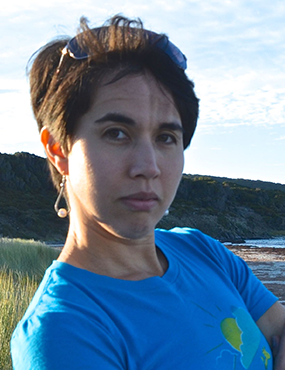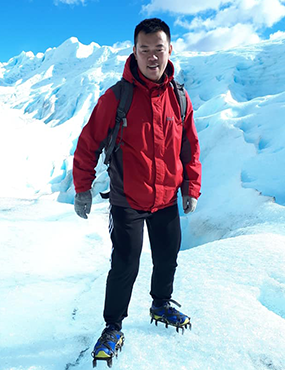Where law and the environment intersect, two new academics in the Macquarie Law School are doing future-shaping research. Associate Professor Nengye Liu's fascination with the importance of oceans has led to his work around the Law of the Sea, while Dr Michelle Lim's research in biodiversity conservation and sustainable livelihoods has taken her from Borneo to Tanzania and now to Macquarie.
Nengye and Michelle will soon be joined by four more new Law School academics: Dr Tina Soliman Hunter, Dr Monika Zalnieriute, Dr Daniela Simone and Dr Shireen Morris.
Dr Michelle Lim
Where were you before joining MQ?

How did you originally become interested in your area of research, and what keeps you interested in it?
Why is your research important?
What would people be surprised to know about you or your work?
What are you looking forward to in your first few months at Macquarie?
Associate Professor Nengye Liu
Where were you before joining MQ?
I grew up in mainland China, educated in Europe and followed my wife Michelle to live and work in Australia since 2015. Prior to MQ, I was in Australia’s highest city - Armidale (University of New England) for a while, then at the University of Adelaide.
How did you originally become interested in your area of research, and what keeps you interested in it?
I first became interested in the law of the sea when doing my PhD in Ghent, Belgium, on the prevention of marine pollution from shipping. The Belgian public train system is very good and accessible for travelling around the country. In a rare sunny day, from Flemish coastal city Ostend, I used to watch busy shipping across the English channel. As time goes by, I travelled to a lot of great maritime cities around the world, such as London, Hamburg, Antwerp, Singapore, Busan and Shanghai, and even to those gateway cities to the Poles, e.g, Tromsø, Ushuaia and Hobart. It keeps reminding me how important the ocean means for human beings and drives my passion in developing international law to better protect our oceans.
Why is your research important?
The ocean covers more than 70 percent of the surface of our planet. A sustainable and healthy ocean is essential for the future of human beings. It is crucial that international law governing human activities in the world’s oceans is well designed to tackle significant challenges in our time, such as global warming and geopolitical competition.
What would people be surprised to know about you or your work?
If you are a fan of English afternoon tea, you may have heard about Keemun black tea. Keemun is actually my hometown, a beautiful little place in mountainous area of Southern Anhui Province. Regarding my work, I am among those who talked a lot about the Antarctic Treaty, but have never been to that frozen continent yet. Before the pandemic, it was my plan though to join a cruise ship (as a scientific lecturer) to the Antarctic peninsula in the coming summer. Now…..
What are you looking forward to in your first few months at Macquarie?
I am looking forward to getting to know the history of Macquarie in coming months, and visiting Museums on campus. History is one of my nerdy interests.